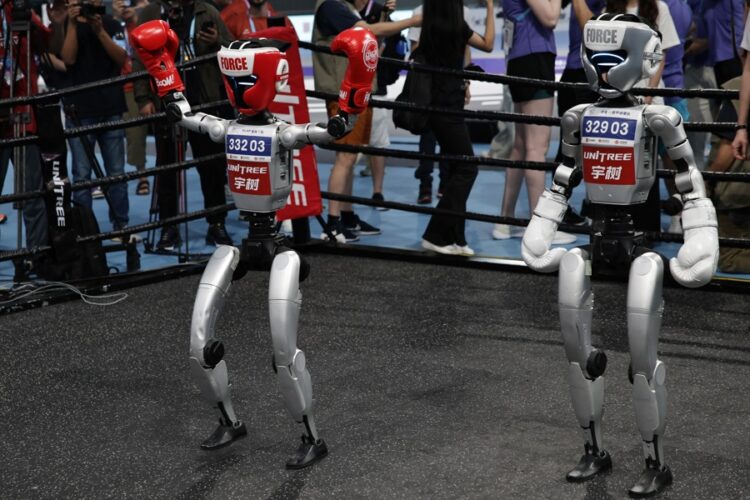Beijing, Aug 17 (EFE).-
China’s Tsinghua Hephaestus team defeated Germany’s Nao Devils on Sunday to win the soccer tournament final at the World Games of Humanoid Robots in Beijing.

The three-day event featured unprecedented robotic sporting moments, from spectacular falls to disputes over relays and refereeing.
In the 5-a-side final, Tsinghua edged past Germany’s HTWK Robots–Nao Devils 1–0. In the 3-a-side competition, China Agricultural University’s Shanhai team won 3–0 against Sweaty from Offenburg University, also representing Germany.
Robotic teams from 14 countries competed in the games, which also included other sports.
In the 100-meter sprint, the robot Tiangong was declared the winner despite finishing third, as the first two competitors—Lingyi and Gaoyi—were disqualified for leaving their lanes.
The 4×100-meter relay title went to Unitree (Yushu), which clocked 1:48.78, ahead of Tiangong (2:22.79) and Xingzhe Taishan (2:37.68).
In the standing long jump, Xiao Wantong from Songyan Dynamics took first place with 1.25 meters, followed by Unitree (1.20 m) and Lingyi Tech (1.13 m).
Sunday’s program also included exhibitions in unconventional disciplines such as hotel service, drug delivery, kung fu, and martial arts, rounding out a diverse schedule at this pioneering event.
The competitions are part of Beijing’s broader strategy to boost its robotics industry, which includes lending equipment to universities and creating new competition formats.
China’s embodied AI sector has grown rapidly. Since early 2025, 12 companies in the field have secured contracts worth nearly $69.6 million.
Firms such as Unitree Robotics have popularized consumer products like robotic dogs and humanoid robots, though experts estimate it may take two to three years before such devices see widespread household adoption due to cost and safety concerns.
In 2024, China produced 556,000 industrial robots, nearly two-thirds of global output, a sector the government considers strategic for addressing demographic challenges. EFE gbm/bks